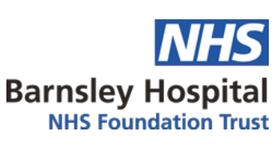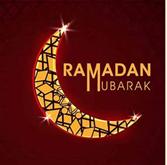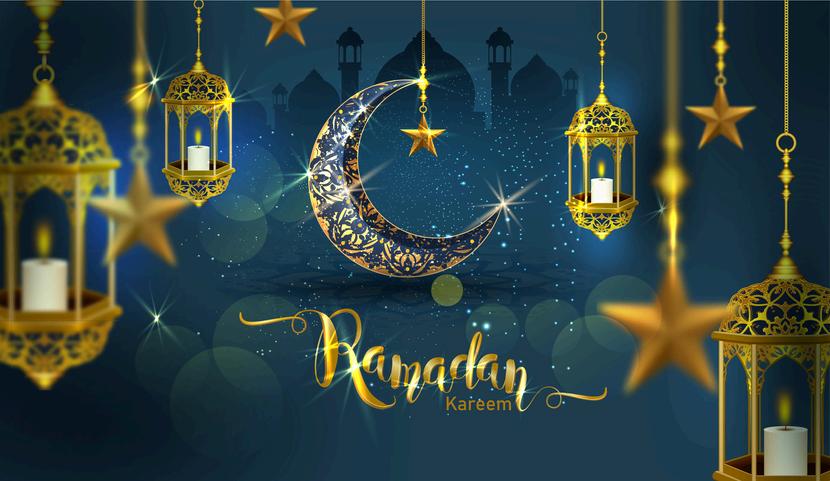Barnsley Hospital Ramadan Guide

We encourage our NHS colleagues to review and discuss this guidance within their teams, share it more broadly to enhance understanding, foster allyship, and serve as a reminder of the importance of creating an inclusive working environment.
To understand and experience how Muslim colleagues feel while fasting during Ramadan This is a meaningful way to show allyship, express gratitude, and deepen our connection with others
What does Islam mean?
The Arabic word 'Islam' means submission and obedience, and derives from a word meaning 'peace' What or who is a Muslim?
A Muslim is a follower of the religion of Islam
What do Muslims believe?
The basic belief of Islam is that there is only one God, whose name in the Arabic language is Allah, and who is the sole and sovereign ruler of the universe.
Ramadan
As Ramadan approaches, Muslims across our cherished NHS and around the world are once again blessed with the opportunity to reflect on their faith and spirituality. Ramadan holds immense significance for Muslims, as it symbolises dedication, reflection, and discipline Through fasting, Muslims shield themselves from sin while placing greater focus on acts of worship, by engaging in actions that please Allah (God). During this sacred month, Muslims deepen their connection with their Creator and receive abundant blessings and rewards.
Ramadan refers to the 9th month of the Islamic Calendar where Muslims are expected to fast from dawn until sunset for one month if able to do so. Fasting is a core practice and one of the Five Pillars of Islam Ramadan also commemorates the first revelation of the Holy Quran to the Prophet Muhammad (peace be upon him).

Key Terms
Suhur; The meal taken just before dawn (before the Fajr prayer start time), which marks the beginning of the fast Iftar; The meal eaten at sunset (start of Magrib prayer) to open the fast.
Tarawih; A night prayer (after the Isha prayer) which is prayed every night during the month of Ramadan. The prayers are lengthier with the Quran recited in them throughout the month.
Zakat Al Fitr; A charity given by all Muslims of all ages who can afford to do so before the Eid prayer is offered.
Taqwa; God consciousness
Fidya: A religious donation to help those in need It is only paid when someone is unable to fast during Ramadan, and will not be able to make up the fast
Laylatul-Qadr; The night of power, when Muslims believe the Quran was first revealed. Believed to be in the last 10 days of Ramadan on the odd nights
Quran; The Holy book for Muslims.
Zakat; One of the five pillars of Islam, where those who are able to should donate 2 5% of one's wealth each year to benefit the poor. Usually Muslims will donate during Ramadan as the rewards are increased during the holy month Allah; Arabic for God

When is Ramadan? The start and end of Ramadan is dependent on the sighting of the crescent of the new moon. Therefore, there are different scenarios for the start and end dates of Ramadan and when Eid Al-Fitr will be celebrated, as shown below: Ramadan Starts: Evening of 28 February Eid al-Fitr begins at the end of Ramadan, on the first day of Shawwal. Here in the UK, the Eid al-Fitr will possibly start on the evening of 30 March
How long does Ramadan last? Ramadan lasts between 29 or 30 days, dependent on sighting the new moon (different scenarios illustrated above).
Why does the start and end of Ramadan change each year? The Islamic calendar is based on the lunar cycle, which is around 11 days shorter than the solar Gregorian calendar and therefore starts earlier each successive year. The month starts on the night the new moon is sighted
Why do Muslims fast in Ramadan? The main purpose of Ramadan is to cultivate God-consciousness, known as Taqwa in Arabic Ramadan is a month of spiritual growth, self-discipline, and worship, where Muslims seek to strengthen their relationship with Allah Taqwa is nurtured through increased prayers, recitation of the Quran, acts of charity, and other virtuous deeds. During this time, Muslims strive to embody values like generosity, patience, and forgiveness, with the intention of carrying these qualities beyond Ramadan Fasting also serves as a reminder of the struggles faced by millions who endure poverty and hunger daily, fostering empathy and gratitude for the blessings Allah has bestowed. While fasting is the most well-known act of worship during this month, it is obligatory for all Muslims who are physically able to observe it.
What times do Muslims fast each day during Ramadan? Muslims fast from the break of dawn (Fajr) to sunset (Magrib) This means that as the month progresses the time span increases for the fast due to the increase in daylight hours
What does fasting involve? During fasting hours, Muslims abstain from food, drink (including water), smoking/vaping, chewing gum, and sexual activity between the break of dawn and sunset Muslims at all times should already be avoiding inappropriate behaviour i e swearing, lying, bad intentions, etc.

Do all Muslims need to fast? All Muslims postpuberty have to fast Fasting is only prescribed for those able to do so. Many Muslims who are unable to fast will engage in the other forms of worship. Those listed below, amongst others, are exempt from fasting: Young children (prepuberty) Elderly Sickness or those with serious or long-term illnesses Pregnant or breastfeeding Women if they’re unable to Menstruating Women or those experiencing lochia Traveler. For some individuals i e , those who missed a fast due to short-term sickness and menstruating women have to make up their lost days of fasting before the next Ramadan Those who can fast, but have to break their fast due to ill health, and those who are exempt from fasting are required to offer a specific type of charity, known as 'fidya' in Arabic, in lieu of their fast This charity is used to feed the hungry. What are the other factors to be mindful of during Ramadan? During Ramadan, Muslims are encouraged to perform additional acts of worship alongside their daily prayers:
Tarawih Prayers: Special congregational prayers held each night in mosques, during which the Imam often recites the entire Quran over the month. These prayers can last 1-2 hours
Itikaf: A spiritual retreat during the last ten days of Ramadan, where some Muslims dedicate their time solely to worship, free from distractions.
Laylatul-Qadr (Night of Power): Occurring in the last ten nights, this is believed to be when the Quran was first revealed. Muslims engage in increased worship and charity, often throughout the night.
Quran Reflection: Ramadan encourages Muslims to read, study, and reflect on the Quran more deeply

Guidance for line managers:
·Avoid assumptions about who is observing Ramadan, as Islam welcomes people from all backgrounds. Create opportunities for colleagues to share if they are fasting.
·Be sensitive and avoid questioning why a Muslim colleague may be eating or drinking, as some may be exempt from fasting
·Make it easy for fasting staff to share their needs by raising awareness of Ramadan in team meetings or newsletters
·Discuss workplace adjustments with fasting staff, such as flexible breaks or adjusted working hours, ensuring minimal impact on service delivery
Encourage team members observing Ramadan to share their experiences if they feel comfortable
Understand that fasting may affect energy levels, so offer support and communicate respectfully, using nonverbal methods when preferred Non-fasting colleagues can eat and drink as usual but should remain considerate by avoiding frequent food offers to fasting colleagues. Be reasonable and fair when granting leave, ensuring a system is in place to manage requests effectively Avoid scheduling meetings or events involving food, as well as those during prayer times, and try to hold activities earlier in the day.
·Adjust workplace duties where possible to reduce physical strain for fasting staff.
Be flexible with leave requests for Eid Al-Fitr, keeping in mind the uncertainty of the exact date due to moon sighting, and accommodate up to three days of celebration where feasible.
·Provide adequate time and space for prayer during work hours.
Regularly check in on the wellbeing of fasting colleagues, considering their preferred communication style
Show flexibility, inclusion, and compassion, recognising religion as a protected characteristic under the Equality Act 2010
How does a fast become void/broken? When food or drink reaches the throat, stomach, and/or intestines, which settles results in the fast being broken This includes:
Eating or drinking intentionally
Intercourse
Masturbation
Deliberately vomiting
Menstruation
Child birth
Oral and nasal medication
Smoking or vaping
Rectal suppository
Food/medication administered via gastrostomy or jejunostomy
What is the biggest impact on Muslims during Ramadan? During Ramadan, many Muslims may have lower energy levels and experience sleep deprivation due to fasting from dawn to sunset and engaging in additional worship, especially during the last 10 days. As Ramadan occurs once a year, Muslims are encouraged to maximise their worship during this holy month
Guidance for colleagues who work with Muslim staff:
•Feel free to ask questions about Ramadan, but check if your colleague is comfortable discussing their faith
•It's okay to eat or drink around Muslim colleagues; most are accustomed to fasting
•Show kindness and compassion, as Ramadan can be physically tiring. Check in with fasting colleagues to offer support
•Be accommodating of different working hours during Ramadan and create space for open discussions about observance.
•Educate yourself about Ramadan to better support Muslim colleagues
•Avoid assumptions about who is fasting and respect those who may be exempt
•Be mindful not to ask why a Muslim colleague is eating or drinking during Ramadan
•Recognise that religion is a protected characteristic under the Equality Act 2010, and demonstrate flexibility, inclusion, and compassion.
•If a colleague seems quieter during Ramadan, don’t take it personally



